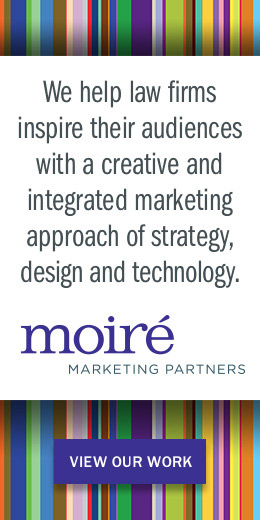
On May 1, Gibson, Dunn & Crutcher will be led by a woman for the first time since the firm’s founding in 1890.
Barbara Becker, an elite M&A lawyer in Gibson Dunn’s New York office, will succeed Ken Doran as Chairman and Managing Partner, positions he has held since 2002.
Becker is no stranger to management. She has served as Co-Chair of the firm’s Mergers and Acquisitions Practice Group, which includes 400 lawyers worldwide. She has also served as a member of the firmwide Executive Committee, and she created and leads the firmwide Diversity Committee.
Becker recently spoke with The WILEF Tribune about taking on her new role. (The interview has been edited for brevity and clarity.)
Have you’ve always gravitated towards management, or were you pulled into it?
I’ve served in various leadership positions at the firm over the years. For sure, I never envisioned becoming managing partner at any point along in my career, including as recently as several months ago. The current managing partner, Ken, asked the partners for names of partners who would be interested. And my name got mentioned a lot, so I had to decide whether I should throw my hat in the ring. The support from partners was really fantastic, especially from female partners. And that propelled me to say, “I should really consider this.”
Nice to hear that. Any reservations about taking the job, especially following Ken?
Of course! Ken has been in the job for two decades. He is an exceptional leader. And of course, it took a lot of thinking to decide to do it. But now that I am in it, I’m really, really excited for the opportunity to build on his and the firm’s success. And I think people are excited for the new chapter.
Will you maintain your M&A practice while serving as managing partner?
Ken was full-time 100% management. I think I’m going to straddle that a bit more. I like working with clients, and I also like building the relationship between the firm and our clients.
Knowing what you know now, anything surprising about the reality of what the job entails?
No. I’ve been on the Executive Committee for a long time, so I know more or less what comes across Ken’s desk. Both Ken and Chuck Woodhouse, our Executive Director, who is also stepping down, have been extremely supportive of the transition and very forthcoming. And so I’m fully enmeshed in the transition right now. There are a lot of dimensions to it.
Taking over during a pandemic is one very large dimension. What does return to work look like? But also, what does engagement with clients look like over the short and long term? How do we think about technology in the practice of law, and how do we make ourselves more efficient? The fun of this job is its multi-dimensional nature. I have a lot to learn from Ken and Chuck, for sure. But I think on these sorts of issues—everybody’s learning at the same time.
You are one of a handful of women recently appointed to lead a major law firm. You also practice in M&A, which has been traditionally dominated by men. Does the idea of breaking barriers resonate with you?
Absolutely. It does in a very big way. Mostly because of what it means to our colleagues at the firm. The notes I’ve received from the graveyard shift in our Los Angeles copy center telling me they got my back to the Dubai secretary who can’t wait to show their daughter a female runs this firm to client outreach and support—it’s been overwhelming and heartwarming. The moment is big, and the pressure’s on. [laughter]
Can you talk about how you plan to push for more diversity in your new role?
Diversity and inclusion have been important to me since I was a baby associate. At the firm, we have been quite affirmative about our diversity efforts. We recently hit 100 women partners after adding 66 to the partnership in the past five years. We’re really proud of that.
We’ve doubled the number of women in firm management as well. So, this has been an evolution and partly because Ken is our partner on diversity and inclusion. I will for sure continue that. We’re super focused on growing our ever-expanding number of Black lawyers at the firm. We increased the number of Black lawyers by 60% this year.
For me, diversity is a cultural differentiator. Clients and our associates expect it. And we will continue to respond because it is a high priority and important to me.
So, the pandemic has not negatively impacted diversity goals?
To the contrary, because the pandemic has allowed us to come together and connect people across offices. Whereas before, you had to fly people around the country, now, we can get our Black lawyers on a Zoom and create community quite easily.
We’ve had more than 30 formalized meetings with our Black lawyers this year, and I think that was facilitated by the Zoom mentality. Of course, now we’re focused on figuring out how to support our Asian American attorneys.
We are amplifying the issue by partnering with our clients. They want us to put diverse lawyers on their matters. When those diverse lawyers become partners, the in-house group at the client then feels excited by our success. It’s a nice connection with clients on these issues.
Who are some of the people who have shaped your career? What did you learn from them?
I pick up pieces of advice, techniques, or how-tos from lots of different people. The person who has allowed me opportunities from an M&A lawyering perspective is my mentor, Dennis Friedman, who is still a partner at the firm. He believed in me early in my career. He would bring me into a boardroom and say, “Meet Barbara. She’s my lawyer.” It was a joke, but it broke the ice and gave me instant credibility.
I pick up what I think could work for me. Because Dennis, for sure, doesn’t look like me, sound like me, act like me. I needed to figure out how to find my voice and be effective in my own right. But I did compile a lot of what I saw and what I thought was effective, and what I could translate to my own.
What’s something that most people assume about you that is wrong?
One of the things I always hear is, “Oh, her success has been enabled because her husband stays at home.” I have four kids, and the implication of that is that he’s the primary caregiver. And I would dispute that. [laughter] And I think he would agree with me.
What would you be if you weren’t a lawyer?
And I had to make a living? [laughter]
Yeah.
My path, interestingly, was to be a doctor. I was pre-med, and then I hit some of those chemistry classes that were mind-numbing to me, so I switched but then ended up being a math major and an economics major, so.
The thread is helping others, solving somebody’s problem. I think that’s what motivates me generally. That’s why I like client service. That’s why I like being in this role because it is fundamentally a people business. I don’t think that’s so different from being a doctor, although the toolset is very different.
What’s the most interesting book you’ve read recently?
I read several books all at once, so I can’t pick one. I generally like nonfiction books, generally about individuals who have achieved greatness in some element of their life or overcome an obstacle in any dimension. So it could be an ultra-marathoner or a psychologist who wants to be the world champion poker player.
I also love traveling the world, and more underdeveloped traveling is for sure my passion. And so I always enjoy books that explore a slice of life in other parts of the world. I have an intense interest in India and Southeast Asia generally.
The last year has been a time of self-reflection for many. What do you take away from the last year?
I take away a lot of things. But I have a kid who graduated from high school and then entered college in this very strange time—plans for semesters abroad were dashed. The resiliency is what stands out. I think everybody is much more resilient than we give ourselves credit for.
My mantra is, “Keep calm, carry on and make the best of every situation.” It doesn’t do anybody very much good to say, “What would have been? What could have been?” Better to say, “Here we are. Let’s make the best out of it.”
Do you crave office interaction?
Yes and no. I think, in my new position, I’m very eager to engage with my partners and colleagues around the world. So yes, in that respect. Do I feel like people need to be in the office five, six, seven days a week to be effective and productive members of the firm? No. And I think for sure, from a diversity and inclusion perspective, having flexibility will help us even more in attracting and retaining talent.
It will be interesting to see how DE&I efforts play out post-pandemic.
I’m pretty optimistic about it because I think work from home actually can work well. I think the burden on mothers is real with kids at home. But if the kids are actually in school, I think it gives parents—and I don’t think it’s limited to mothers—an opportunity to be more part of the kid’s life but still engage meaningfully in work.



